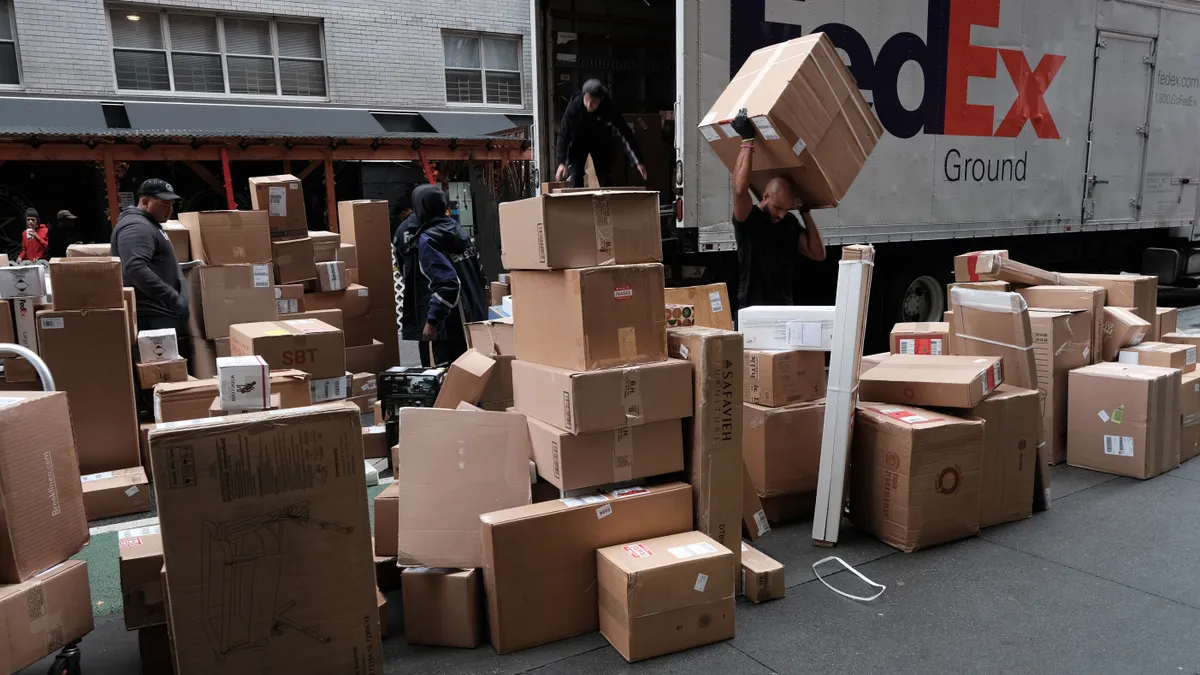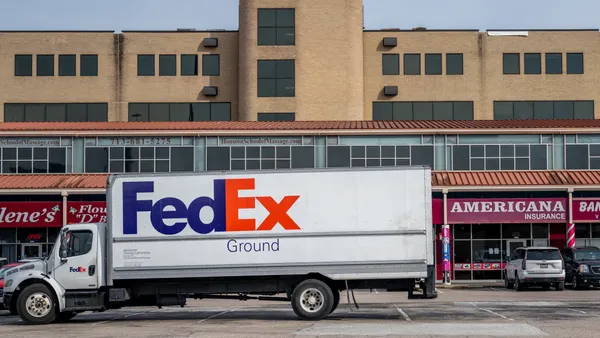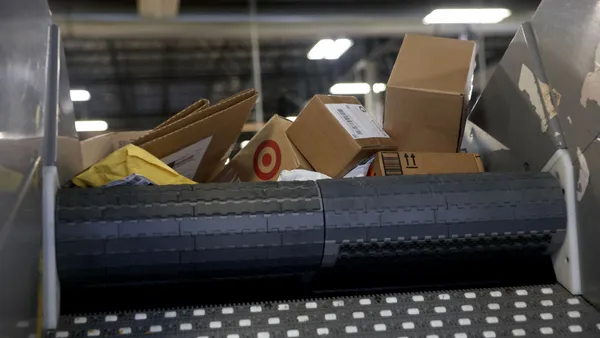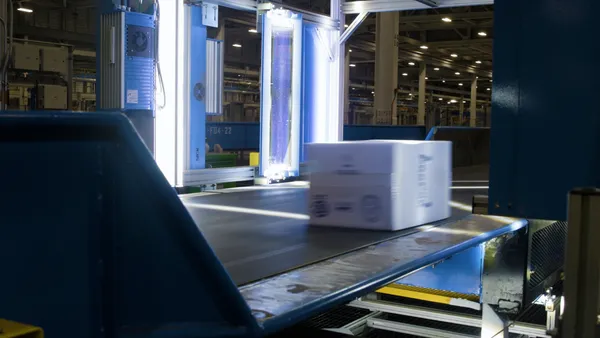Dive Brief:
- FedEx will deliver large packages to Amazon's residential customers under a multi-year agreement, FedEx said in an emailed statement Monday.
- The two parties signed a partnership deal in late February that provides Amazon "cost favorability" when compared to using UPS, Business Insider reported, citing an internal document. Further details of the arrangement, including its timing and scope, were not provided by FedEx or Amazon.
- "FedEx joins our other third-party partners like UPS and the USPS, that work alongside our own last mile delivery network to help us balance capacity to best serve customers," Amazon spokesperson Steve Kelly said in an emailed statement.
Dive Insight:
The agreement marks a rekindling of the two parties' relationship nearly six years after FedEx announced it wouldn't renew its Ground and Express domestic shipping contracts with Amazon. At the time, FedEx said it wanted to focus on the broader e-commerce market.
E-commerce remains a priority customer segment, but the carrier is making wide-ranging changes to its network that allow it to handle those deliveries more efficiently. That's particularly important in serving a customer like Amazon, which can offer large amounts of volume but often at a less profitable clip — a gripe UPS has had in its Amazon delivery arrangement.
"Did UPS miss an opportunity here or is FedEx ahead in the network optimization race and is able to deliver these package types at a lower price compared to UPS and still make a profit?" said Jay Kent, managing director of SLB Performance, in a LinkedIn post.
The deal's announcement comes after UPS said in January said it would cut its Amazon volume by more than 50% by the second half of 2026 due to profitability concerns. However, the FedEx agreement isn't meant to replace delivery capacity from UPS, according to Amazon.
The arrangement meets a need for both companies, said Nate Skiver, founder of LPF Spend Management, in a LinkedIn post. FedEx gets a volume and revenue boost, while Amazon nabs support for harder-to-handle products.
Skiver added that there's limited large-package delivery options for Amazon available in the U.S. parcel market, particularly for longer-distance shipments.
"There’s nowhere else to turn if UPS won’t take it," he said.
More than two-thirds of Amazon packages are delivered through its in-house logistics network in the U.S., according to the company. But large packages can be difficult to handle efficiently, even for Amazon and FedEx's highly automated networks. Parcel carriers typically institute fees for bulkier shipments, the cost of which has climbed in recent years.















